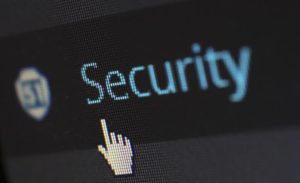Table of Contents
The stakes are high in the business world, and the margin for error is slim. One wrong move could put your hard-earned assets at risk—whether it’s your intellectual property, physical inventory, or your invaluable team. Given the uncertainties surrounding today’s business climate, it’s more crucial than ever to keep your assets safe and secure. This article aims to shed light on various strategies you can employ to protect what’s most important to your business.
Ways You Can Protect Your Business Assets
Implement Stringent Cybersecurity Measures
You wouldn’t leave your office or warehouse unlocked overnight, would you? The digital realm is no different. Cyber threats have evolved over the years, and hackers have become increasingly sophisticated. With the rise of ransomware and data breaches, the cost of neglecting cybersecurity can be astronomical.

Start by conducting a thorough cybersecurity audit to identify vulnerabilities. You might think your small business isn’t a worthwhile target for hackers, but you’d be wrong. According to a recent report, over 40% of cyber-attacks are aimed at small businesses. Implementing a solid firewall, using complex passwords, and regular employee training are just a few measures you can take.
Safeguard Your Intellectual Property
Often overlooked, intellectual property (IP) is an invaluable asset that needs protection. From your company’s logo and brand name to internal processes and proprietary technology, these are things that give you a competitive edge. But they’re also at risk of being copied or stolen, especially in a world where information is easily accessible.
Consult a legal expert to ensure that all your intellectual property is adequately protected through copyrights, patents, or trademarks. This might seem like an upfront expense you’d rather avoid, but consider it a long-term investment. Having legal protections in place deters theft and ensures you have legal recourse should the worst happen.
Physical Security Measures
Physical assets like your office space, equipment, and inventory are the backbone of your business operations. Simple measures, such as a robust locking system and security personnel, go a long way. However, in today’s age, traditional methods aren’t enough.

One of the most effective ways to augment your physical security is by implementing surveillance systems. CCTV dashcam systems for fleets from places like Rewire Security offer an extra layer of protection, ensuring that your vehicles and goods are monitored in real-time. This kind of technology not only deters theft but also provides evidence in case of any untoward incidents.
Employee Training and Awareness
No matter how advanced your security systems are, they’re only as strong as the weakest link—and oftentimes, that’s human error. Employees might unknowingly click on a phishing link or neglect to lock a secured area, and just like that, you’re vulnerable.
Initiate regular training sessions on the importance of security, both online and offline. Make sure everyone understands the protocols and the reasons behind them. It’s not just the responsibility of your IT or security team; a collective effort is needed to ensure the safety of business assets.
Financial Safeguards
Financial stability is another pillar that holds your business upright. It’s not just about making profits, but also about protecting those profits and the assets they represent. Market volatility, economic downturns, or unforeseen expenses can put a dent in your financial assets.
Budget for an emergency fund and consider various insurance options that cater to your industry’s specific needs. Business interruption insurance and liability coverage can act as a safety net when things go awry.
Vendor and Supply Chain Security
Your business doesn’t operate in a vacuum; it’s part of an intricate ecosystem that involves various third parties like vendors and suppliers. A breach in their security can easily become a breach in yours, especially if you share networks, data, or physical space.

Before entering into contracts, conduct rigorous vetting processes and insist on clauses that detail the security measures vendors must adhere to. Regular audits can ensure that these third parties maintain the level of security necessary to protect your shared interests.
Crisis Management and Response Plan
A comprehensive crisis management plan outlines the steps to take when things go south. Whether it’s a cyber attack, a natural disaster, or a public relations fiasco, having a plan gives you a roadmap to mitigate damage and recover more quickly.
Your crisis management plan should include contact information for key personnel, emergency services, and other stakeholders. Lay out the procedures for different types of crises, and assign roles to specific team members. Regularly review and update the plan, and make sure new employees are briefed as part of their orientation.
Conclusion
The challenge of protecting your business assets is akin to a game of chess. It’s about thinking several moves ahead and being prepared for various eventualities. From robust cybersecurity measures and legal protections to employee training and financial safeguards, the key is to create a multi-layered defence strategy. In doing so, you not only protect your assets but also build a culture of responsibility and awareness, making your business resilient in the face of ever-changing risks.
By adhering to these guidelines and continually evolving your strategies, you can stay one step ahead of potential threats and focus on what you do best: running a successful business.


